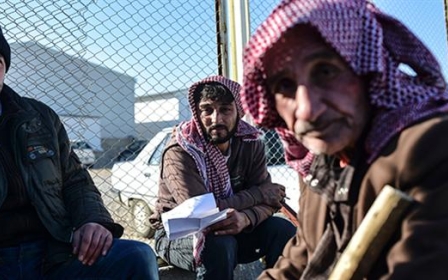Turkey's Erdogan call coup 'treason' and blames Gulen supporters

Turkish President Recep Tayyip Erdogan on Saturday blasted a coup attempt as "treason," putting the blame on supporters of his arch-foe, US-based Turkish cleric Fethullah Gulen, in defiant remarks after flying back to Istanbul.
"What is being perpetrated is treason and a rebellion. They will pay a heavy price for this act of treason," Erdogan said at Istanbul's Ataturk airport.
“They are trying to topple a government brought to power by the people's votes. We are willing to sacrifice our lives on this path we have chosen,” he said.
The president said his hotel in the Aegean coast resort of Marmaris was bombed after he left. But he remained defiant, vowing: "We will not leave our country to occupiers."
Erdogan also said he will clean up the military.
“This will result in a cleanup of our military, which should be clean,” he said.
“Why are these F-16s flying over our skies? We bought these to defend our country. They are flying against our people. And they are blocking flights and threatening the president,” he added.
“These tanks dont belong to them. They will be held to account.”
In blaming his former friend turned rival, Gulen, who is a Turkish cleric based in the US, Erdogan said: “Perhaps you thought you shared these values with some of those you studied alongside. You were wrong. They take orders from Pennsysvania [Gulen's place of residence]."
Turkish Prime Minister Binali Yildirim meanwhile said over 120 people had been arrested over the coup attempt.
Gulen movement denies involvement
Gulen, the US-based cleric accused by Ankara of orchestrating the coup attempt in Turkey, has a wide following in his native country, where he enjoys support among the police and judiciary.
His movement, however, denied involvement, saying in a statement that it was committed to democracy and was opposed to any military intervention.
Gulen, 75, was once a close ally of Erdogan but the two fell out in recent years, as Erdogan became suspicious of the so-called Gulenist movement's powerful presence in Turkish society, including the media, police and judiciary.
The preacher moved to the United States in 1999, before he was charged with treason in his native country.
He has since led a secluded life in Pennsylvania, declining interviews and rarely making public appearances.
The power struggle between the two foes came to a head in late 2013 after judicial officials thought to be close to Gulen brought corruption charges that directly implicated some of Erdogan's inner circle, including his son Bilal.
Erdogan launched a series of counterattacks, purging hundreds of army officers, including top generals, shutting down schools operated by Gulen's movement, Hizmet, and firing hundreds of police officers.
He has also gone after newspapers believed to be sympathetic to his rival, firing their editors or shutting them down.
Turkish authorities have accused the preacher of seeking to establish "a state within a state" in Turkey, but his movement insists he is committed to democratic reform and interfaith dialogue.
Stay informed with MEE's newsletters
Sign up to get the latest alerts, insights and analysis, starting with Turkey Unpacked
Middle East Eye delivers independent and unrivalled coverage and analysis of the Middle East, North Africa and beyond. To learn more about republishing this content and the associated fees, please fill out this form. More about MEE can be found here.




